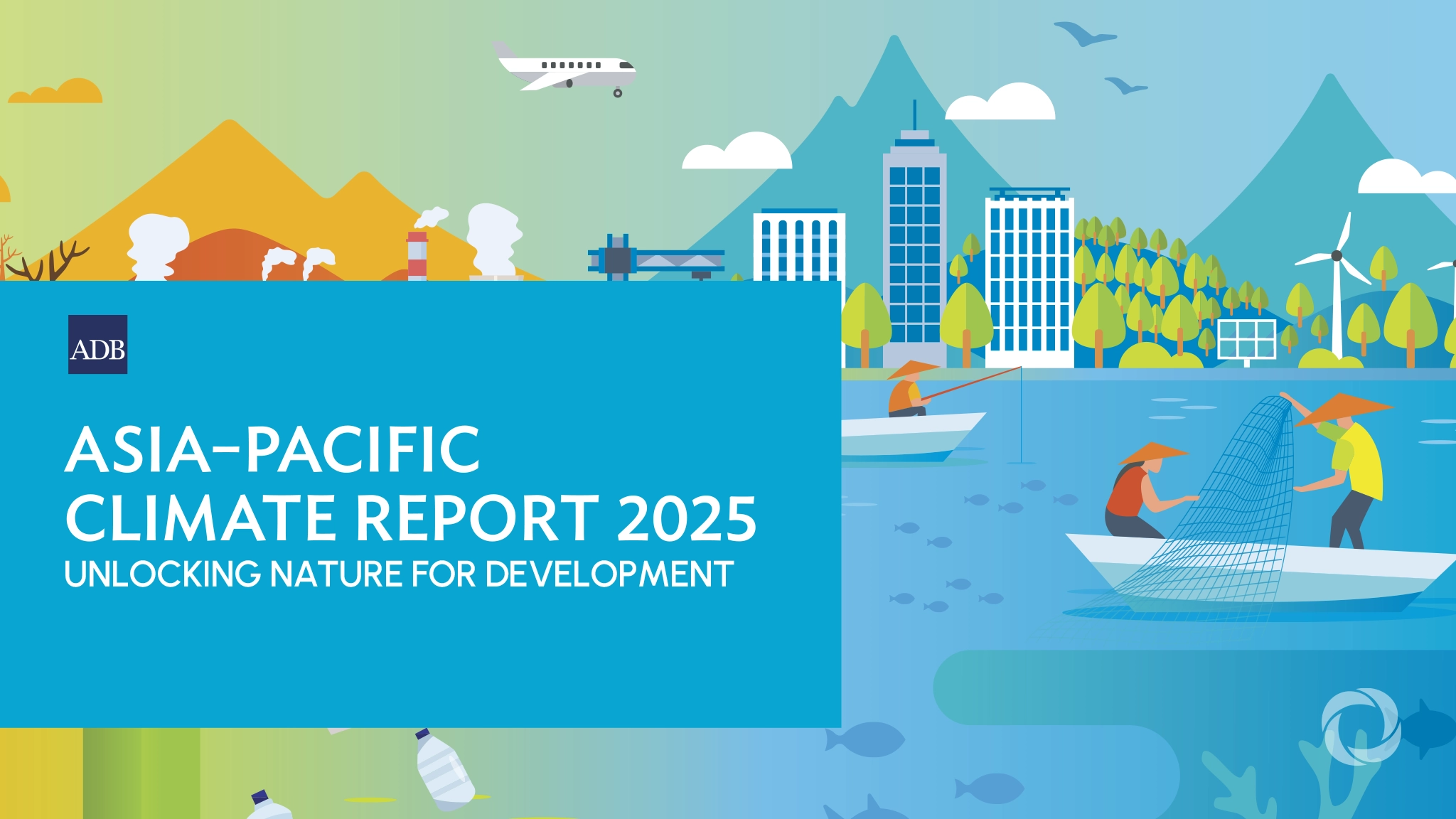Protecting ecosystems could unlock major gains in jobs, productivity, and fiscal resilience across Asia and the Pacific, where 75% of economic output comes from sectors that depend moderately or heavily on nature, a new Asian Development Bank (ADB) report shows. The Asia-Pacific Climate Report 2025: Unlocking Nature for Development calls on governments to make protecting nature a core part of how their economies operate, warning that nature is degrading at an alarming rate.
ADB Chief Economist Albert Park says healthy ecosystems aren’t environmental extras—they’re productive assets at the heart of Asia’s growth and resilience. “Countries that invest in nature are investing in their own competitiveness and fiscal stability,” he said. But nature remains undervalued and underfinanced. Of more than $270 trillion in global financial assets, about $200 billion a year—under 1%—supports nature-positive investments like sustainable farming or using wetlands and mangroves to manage floods, improve water quality, store carbon, and support fisheries.
Closing the biodiversity and climate financing gap in Asia and the Pacific will take over $1 trillion annually. The report says public finance should focus on building the systems that attract private investment. By directing public money toward governance, policy, and data reforms, governments can unlock large-scale private capital for nature-positive growth.
The report presents a 10-year road map to help economies bring nature into economic and financial systems. Near-term actions include subsidy reform, natural-capital accounting, and planning at the right spatial scale, which can extend beyond national borders. Longer-term reforms focus on aligning governance, data, and finance to deliver both environmental and economic benefits.
Economies in the region are already taking steps to value nature as productive capital and are well positioned to lead the world in upgrading their economic systems. Development banks like ADB can help by mobilizing finance, providing technical help, and fostering regional cooperation.

